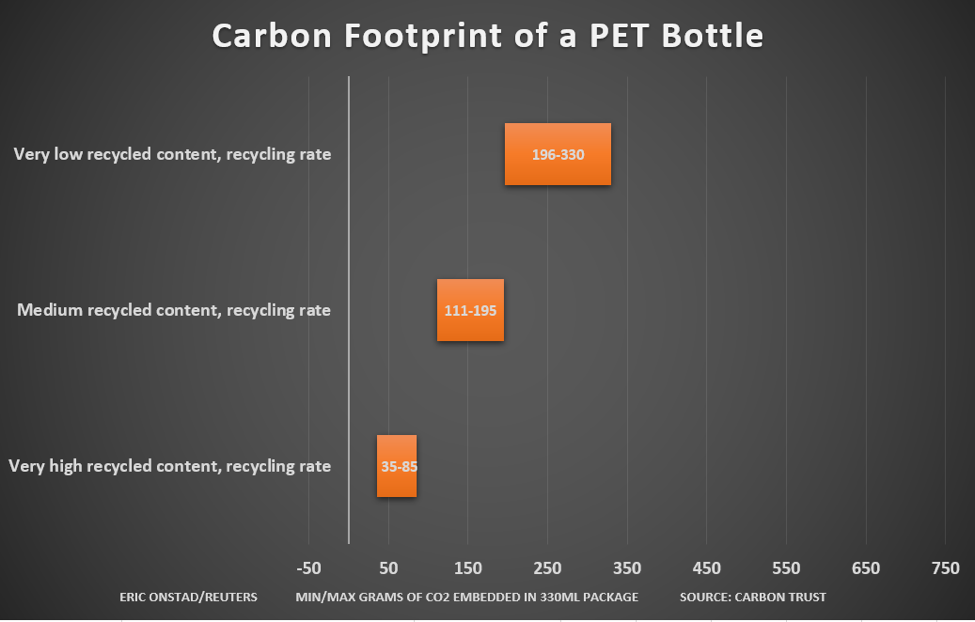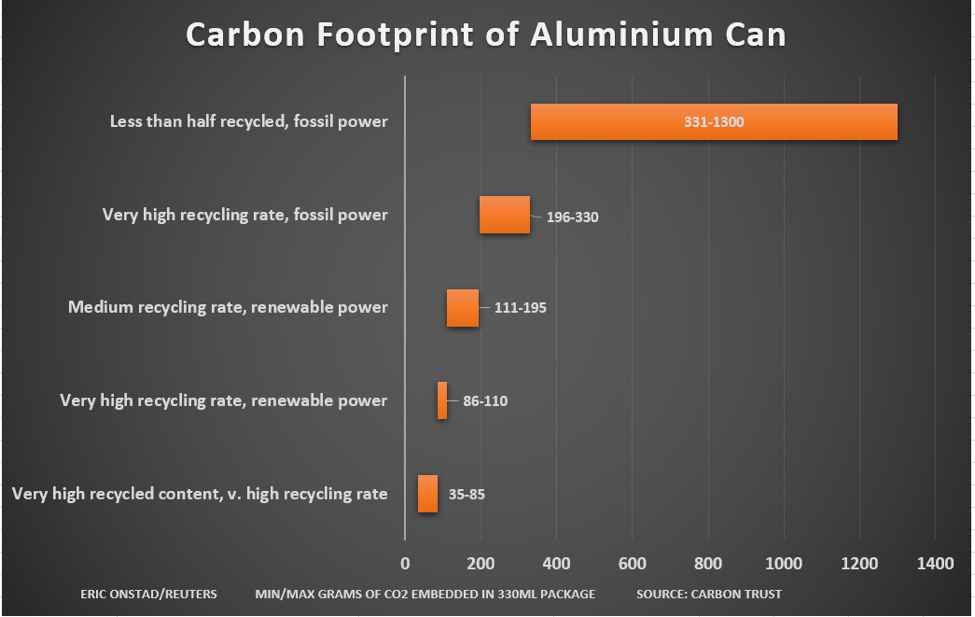Why Plastic Is the More Sustainable Choice for Water Packaging

Recently there has been a heightened sensitivity toward the use of plastics. Specifically, the use of plastic packaging for commonly used items like bottles. Much of this backlash comes from the idea that this plastic ends up in the oceans, leading to disastrous and far reaching environmental problems. In fact, there have even been legislative bills proposed to tax water bottling companies.
If plastic bottles were eliminated, what then would they be replaced with? The alternative options include glass, aluminum and tetra aseptic cartons. A recent study was conducted by Amcor to determine what packaging would truly be the most sustainable for water bottling companies to use. Amcor is a global leader in developing and producing responsible packaging for food, beverage, pharmaceutical, medical, home and personal care, and other products.
The conclusions of the study found that not only is PET plastic a more sustainable material, but overall it leaves less of a carbon footprint compared to aluminum cans and glass. Read more details about the findings below:
Let's Talk About PET Plastic Material
Polyethylene terephthalate (PET) is a highly recyclable plastic resin that is BPA free, lightweight and durable. What makes PET so sustainable is that it is indefinitely recyclable with existing technologies including chemical recycling. This means that a PET water bottle recycled today could potentially be used as a water bottle for your children and their children, etc. Additionally, PET material packaging contributes to 70% less greenhouse gas emissions compared to aluminum cans and glass. PET is a favorable water bottle container because it's an inert substance that is BPA free and won't degrade or be leached into the water itself.

Are Aluminum Cans the Answer?
Manufacturing aluminum cans generates three times more greenhouse gas emissions than PET bottles. It also takes twice the amount of fossil fuels to produce an aluminum can than a PET bottle. Similar to glass bottles, the U.S. recycling rate of aluminum is only 49%. Compare that to the fact that 90% of the PET that goes into the recycling bin is actually recycled. Another drawback of cans is that aluminium is extracted from bauxite ore, which is strip-mined and incredibly destructive to the natural environment, leaving toxic “tailings”.
Glass Packaging Myths
When we think of glass compared to plastic, we often think of it as a more natural option for its perceived quality and product integrity. However, when it comes to recyclability and sustainability, glass doesn't have the potential to be continually reused compared to PET plastic material. First off, PET plastic actually uses less raw material for initial production than glass. A 750 mL glass bottle weighs 400-600 grams, while a PET equivalent weighs just 54 grams. This means that fewer raw materials are consumed in production as well as less fuel used for transportation. Amcor cites a study by Goldman Sachs that found that the carbon footprint of PET bottles was much lower than that of glass bottles. PET bottles produce up to 77% fewer greenhouse gases during production compared to glass bottles. Even when both items are recycled at the same rate, only 60% of glass in a recycling bin can actually be recycled, compared to 90% of the PET that goes in the recycling bin.
.png?width=2094&name=image(3).png)
What About Tetra Aseptic Cartons
Tetra aseptic cartons are often used with juices, shakes, and other niche beverages. Why shouldn't water bottle companies try using them too? It can be easy to think that cartons are natural and less of a carbon footprint, but this option is actually the least reusable of the three. Made from a combination of paper, plastic and aluminum foil, tetra aseptic cartons are very difficult to recycle in the U.S. Only a mere 16% of this material in a recycling bin can actually be recycled, with the majority ending up in a landfill or incinerated.
Eldorado Natural Spring Water Uses 100% Recycled PET Material
At the end of the day, we all want to live in a clean, thriving environment that we can pass down to our children. To make this a reality, it's not only up to legislators, corporations and small businesses to be accountable, but also us as individuals who must make the effort to recycle our personal waste.
At Eldorado Natural Spring Water, we choose to use PET material that only comes from recycled material in our ½ liter, 24 ounce and 1-liter bottles. Not because we are compelled to do so by legislative or social pressures, but because that's why we got into this business. We started this company as a "Guardianship of the Spring". We set out to preserve the natural spring water coming from Colorado and believe that natural spring water should be about getting closer to nature, not further from it.
Throughout our 30-year history, we’ve never stopped looking for safer, more cost-effective ways to provide our customers with the best natural spring water on the market. From production utilizing solar power, to 96% waste recycled from plant, to using 100% recycled PET in our bottles, we are proud of the efforts we have made and continue to make to reduce our impact on the environment. https://www.eldoradosprings.com/environmental-stewards
To download a PowerPoint presentation of the study by Amcor, click here.
This blog previously published on 2/18/2020









